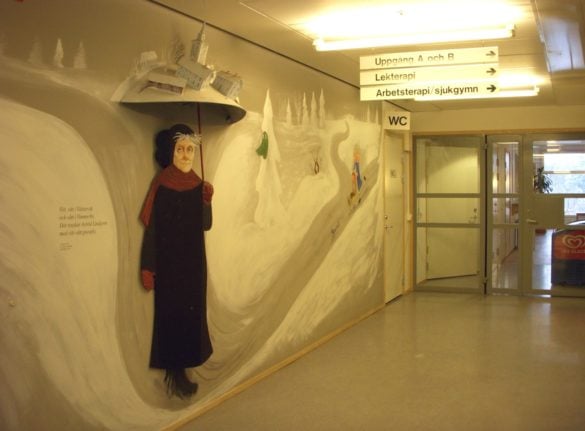- Stockholm's ICUs reach 99 percent capacity
- Is the second wave overloading Sweden's intensive care?
- 'The biggest challenge of our time': How Sweden doubled intensive care capacity amid Covid-19 pandemic
HOSPITALS
‘The situation is serious’: Stockholm health chief calls for private sector help
Stockholm's health authorities have made a new call for help, asking for private healthcare companies to free up staff to help solve a severe shortage in intensive care places.
Published: 12 December 2020 14:45 CET

Doctors and nurses have already been transferred from Astrid Lindgren's Children's hospital. Photo: Holger Ellgaard/Wikipedia Commons
Stockholm's health authorities have made a new call for help, asking for private healthcare companies to free up staff to help solve a severe shortage in intensive care places.
“The situation is serious and we need help,” Björn Eriksson, the region's health chief, told Sweden's TT newswire. “Around a third of healthcare in Stockholm is carried out in the private sector. It makes sense for them also to take responsibility.”
READ ALSO:
Eriksson made headlines internationally on Wednesday when he warned that the region's intensive care units were at 99 percent capacity.
On Friday he called the region's biggest private healthcare providers to a meeting, hoping to convince them to release staff to help out in the city's intensive care wards.
“Give them time off and let them come and work for us,” he said.
Even though there are currently only 80-90 coronavirus patients being treated in intensive care in Stockholm compared to a peak of 230 in the spring, there are many more patients with other conditions needing emergency treatment.
“What we have now that we didn't have in the spring is that there are many people seeking other types of acute care. That went down completely for several weeks in the spring,” he said.
Eriksson said that private healthcare providers had responded positively to his call, but he said it was still unclear how much the region might have to pay for the additional staff.
“We are going to need as many as possible, so of course it's going to be pricey for us,” he said. “At first it's the region which pays the cost, but all extra costs connected to covid-19 will later on be reimbursed by the state.”
On Friday evening Astrid Lindgren's children's hospital said it was seconding 120 medical staff to Karolinska University Hospital to support Covid care.
Url copied to clipboard!


 Please whitelist us to continue reading.
Please whitelist us to continue reading.
Member comments